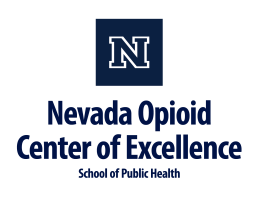Human trafficking is a rapidly increasing public health and safety issue in the United States. It is the fastest rising commerce in the world with over 200,000 minors at risk in the United States. People are forced into labor or sexual exploitation with deception and intimidation. It is reported that up to 80% of victims are seen by a healthcare provider while captive. Often, victims will not identify themselves as such due to the fear of being further abused by their captor. Health care providers are perfectly positioned to identify the signs and report suspected human trafficking. By educating clinicians, victims of trafficking may be more likely to be rescued and receive the appropriate resources recovery. This course will define types of trafficking, differentiate between sex trafficking and sex work, identify at-risk populations, describe how to identify and report trafficked patients, and discuss trauma-informed care. This course is approved by the Texas Health and Human Services Commission in accordance with House Bill 2059, 86th Session, 2019.
Learning Objectives:
By the end of this presentation, participants will:
- Understand the definition of human trafficking, who is at risk, recruitment techniques, and the different types of trafficking.
- Identify the difference between sex trafficking and sex work and trafficking and smuggling.
- Learn how to identify a person that is being trafficked through screening and observing clinical signs, and when it is mandated to report.
- Understand how traffickers exploit addiction and shared risk factors, such as trauma and economic instability, to control victims.
- Recognize the critical role of healthcare providers in identifying signs of trafficking and addiction and connecting victims to resources.
- Understand the procedures in which to report a potentially trafficked person.
- Apply harm reduction tools and trauma-informed care strategies to support victims and collaborate with organizations to address trafficking and opioid addiction effectively.
- Identify local and national resources for trafficked persons.
Presented by: Kandice Swarthout, RDH, LPC
Kandice Swarthout, RDH, LPC is a Licensed Professional Counselor and Registered Dental Hygienist. She is a full-time dental hygiene educator in Texas where she teaches community dentistry and research. Kandice is the owner of a CE company called Inspired Education & Wellness where she is a speaker, writer, private practice therapist, and co-owner of Muffins & Mimosas Dental Study Club.
Continuing Education Units: 2 CEUs
This training is approved for continuing education by Nevada Certification Board for Peer Recovery Support Specialists (PRSS and PRSS-S), Community Health Workers (CHW), and Doulas as well as the boards listed here.
Funding for this activity was made possible in whole or in part by the Nevada Department of Health and Human Services (DHHS) Director’s Office through the Fund for a Resilient Nevada, established in Nevada Revised Statutes 433.712 through 433.744. The opinions, findings, conclusions, and recommendations expressed in our courses are those of the author(s) and do not necessarily represent the official views of the Nevada Opioid Center of Excellence or its funders.

